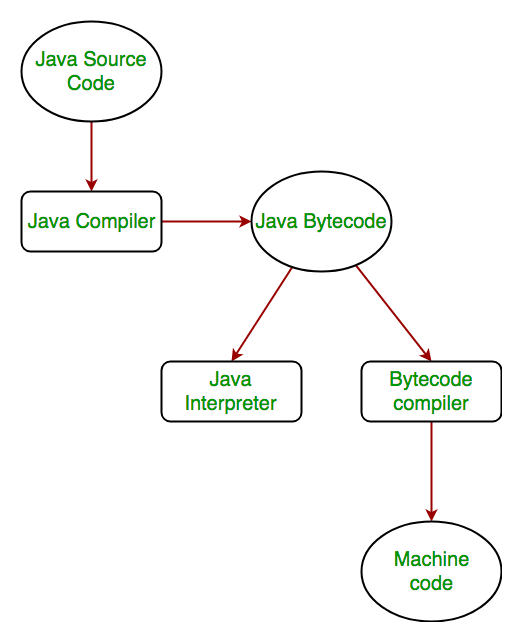In general both equals() and “==” operator in Java are used to compare objects to check equality but here are some of the differences between the two:
- Main difference between .equals() method and == operator is that one is method and other is operator.
- We can use == operators for reference comparison (address comparison) and .equals() method for content comparison. In simple words, == checks if both objects point to the same memory location whereas .equals() evaluates to the comparison of values in the objects.
- If a class does not override the equals method, then by default it uses equals(Object o) method of the closest parent class that has overridden this method.
- Coding Example:
// Java program to understand// the concept of == operatorpublicclassTest {publicstaticvoidmain(String[] args){String s1 =newString("HELLO");String s2 =newString("HELLO");System.out.println(s1 == s2);System.out.println(s1.equals(s2));}}Output:false true
Explanation: Here we are creating two objects namely s1 and s2.- Both s1 and s2 refers to different objects.
- When we use == operator for s1 and s2 comparison then the result is false as both have different addresses in memory.
- Using equals, the result is true because its only comparing the values given in s1 and s2.
Let us understand both the operators in detail:
Equality operator(==)
We can apply equality operators for every primitive types including boolean type. we can also apply equality operators for object types.
// Java program to illustrate // == operator for compatible data // types class Test { public static void main(String[] args) { // integer-type System.out.println(10 == 20); // char-type System.out.println('a' == 'b'); // char and double type System.out.println('a' == 97.0); // boolean type System.out.println(true == true); } } |
Output:
false false true true
If we apply == for object types then, there should be compatibility between arguments types (either child to parent or parent to child or same type). Otherwise we will get compile time error.
// Java program to illustrate // == operator for incompatible data types class Test { public static void main(String[] args) { Thread t = new Thread(); Object o = new Object(); String s = new String("GEEKS"); System.out.println(t == o); System.out.println(o == s); // Uncomment to see error System.out.println(t==s); } } |
Output:
false false // error: incomparable types: Thread and String
.equals()
In Java, string equals() method compares the two given strings based on the data/content of the string. If all the contents of both the strings are same then it returns true. If all characters are not matched then it returns false.
public class Test { public static void main(String[] args) { Thread t1 = new Thread(); Thread t2 = new Thread(); Thread t3 = t1; String s1 = new String("GEEKS"); String s2 = new String("GEEKS"); System.out.println(t1 == t3); System.out.println(t1 == t2); System.out.println(t1.equals(t2)); System.out.println(s1.equals(s2)); } } |
Output:
true false false true
Explanation: Here we are using .equals method to check whether two objects contains the same data or not.
- In the above example, we are creating 3 Thread objects and 2 String objects.
- In the first comparison, we are checking that t1 == t3 or not. As we know that both t1 and t3 pointing to same object that’s why it returns true.
- When we are comparing 2 String objects by .equals() operator then we are checking that is both objects contains the same data or not.
- Both the objects contains the same String i.e. GEEKS that’s why it returns true.

No comments:
Post a Comment